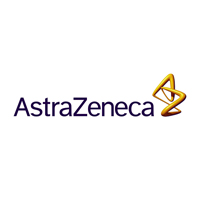AstraZeneca (LON:AZN) has today announced that it has received marketing authorisation from China’s National Medical Products Administration for Imfinzi for the treatment of patients with unresectable, Stage III non-small cell lung cancer (NSCLC) whose disease has not progressed following concurrent platinum-based chemotherapy and radiation therapy.
The approval of Imfinzi is based on results from the primary analysis of progression-free survival (PFS) and supported by overall survival (OS)from the Phase III PACIFIC trial, both published in The New England Journal of Medicine. A post-hoc analysis of three-year OS results has since shown that consistent efficacy was maintained for treatment with Imfinzi after additional follow up.1
Dave Fredrickson, Executive Vice President, Oncology Business Unit said: “This approval illustrates our long-standing commitment to improving health outcomes in China, where more than one-third of the world’s lung cancer diagnoses and deaths occur. As the global standard of care in this curative-intent setting, Imfinzi is an important new option for patients in China.”
Results demonstrated a statistically significant and clinically meaningful OS and PFS benefit for treatment with Imfinzi vs. placebo after concurrent CRT. Imfinzi reduced the risk of death by 32% (equal to a hazard ratio of 0.68) and prolonged the time patients lived without disease progression or death by more than 11 months (median PFS: 16.8 vs. 5.6 months; hazard ratio of 0.52).
Among patients treated with Imfinzi, the most common adverse reactions (greater than or equal to 20% of patients) were cough, fatigue, pneumonitis or radiation pneumonitis, upper respiratory tract infections, dyspnoea, and rash. Serious adverse reactions occurred in 29% of patients treated with Imfinzi, and 15% of patients discontinued treatment due to adverse reactions.
Imfinzi is approved in the curative-intent setting of unresectable, Stage III NSCLC after CRT in 54 countries and regions, including the US, Japan and across the EU, based on the Phase III PACIFIC trial. The PACIFIC regimen, CRT followed by Imfinzi, is the global standard of care for the treatment of unresectable Stage III NSCLC.
About PACIFIC
The PACIFIC trial was a Phase III, randomised, double-blinded, placebo-controlled, multi-centre trial of Imfinzi as treatment in ‘all-comer’ patients (i.e. regardless of PD-L1 status) with unresectable, Stage III (locally advanced) NSCLC whose disease had not progressed following concurrent platinum-based CRT.
The trial was conducted at 235 centres across 26 countries involving 713 patients. The primary endpoints of the trial were PFS and OS, and secondary endpoints included landmark PFS and OS, objective response rate, and duration of response.
About Stage III NSCLC
Stage III (locally advanced) NSCLC is commonly divided into three sub-categories (IIIA, IIIB and IIIC), defined by how much the cancer has spread locally and the possibility of surgery.2 Stage III disease is different from Stage IV disease, when the cancer has spread throughout the body (metastasised), as the majority of Stage III patients are currently treated with curative intent.2,3
Stage III NSCLC represents approximately one-third of NSCLC incidence and in 2015 was estimated to affect nearly 200,000 patients in the following eight key countries: China, France, Germany, Italy, Japan, Spain, UK, US.4,5 The majority of Stage III NSCLC patients are diagnosed with unresectable tumours.6 Prior to approval of Imfinzi in this setting, no new treatments beyond CRT had been available to patients for decades.7-10
About Imfinzi
Imfinzi (durvalumab) is a human monoclonal antibody that binds to PD-L1 and blocks the interaction of PD-L1 with PD-1 and CD80, countering the tumour’s immune-evading tactics and releasing the inhibition of immune responses.
Imfinzi is also approved for previously treated patients with advanced bladder cancer in 11 countries, including the US.
As part of a broad development programme, Imfinzi is also being tested as a monotherapy and in combination with tremelimumab, an anti-CTLA4 monoclonal antibody and potential new medicine, as a treatment for patients with NSCLC, small cell lung cancer, bladder cancer, head and neck cancer, liver cancer, biliary tract cancer, cervical cancer and other solid tumours.
About AstraZeneca in lung cancer
AstraZeneca has a comprehensive portfolio of approved and potential new medicines in late-stage clinical development for the treatment of different forms of lung cancer spanning several stages of disease, lines of therapy and modes of action. We aim to address the unmet needs of patients with EGFR-mutated tumours as a genetic driver of disease, which occur in 10-15% of NSCLC patients in the US and EU and 30-40% of NSCLC patients in Asia, with our approved medicines Iressa (gefitinib) and Tagrisso (osimertinib), and ongoing Phase III trials ADAURA, LAURA, and FLAURA2 as well as the Phase II combination trials SAVANNAH and ORCHARD.11-13
Our extensive late-stage Immuno-Oncology programme focuses on lung cancer patients without a targetable genetic mutation which represents approximately three-quarters of all patients with lung cancer.14 Imfinzi, an anti-PDL1 antibody, is in development for patients with advanced disease (Phase III trials POSEIDON, PEARL, and CASPIAN) and for patients in earlier stages of disease including potentially-curative settings (Phase III trials AEGEAN, ADJUVANT BR.31, PACIFIC-2, PACIFIC-4, PACIFIC-5, and ADRIATIC) both as monotherapy and in combination with tremelimumab and/or chemotherapy.








































